
Olive tree planter Contemporary Planters, Modern Planters, Modern Garden, Outdoor Planters
Olive trees are often grown indoors as non-flowering and non-fruiting ornamentals valued for their attractive silvery evergreen foliage. While treating it like a houseplant allows you to grow it in cool climates, indoor growing has its limitations.
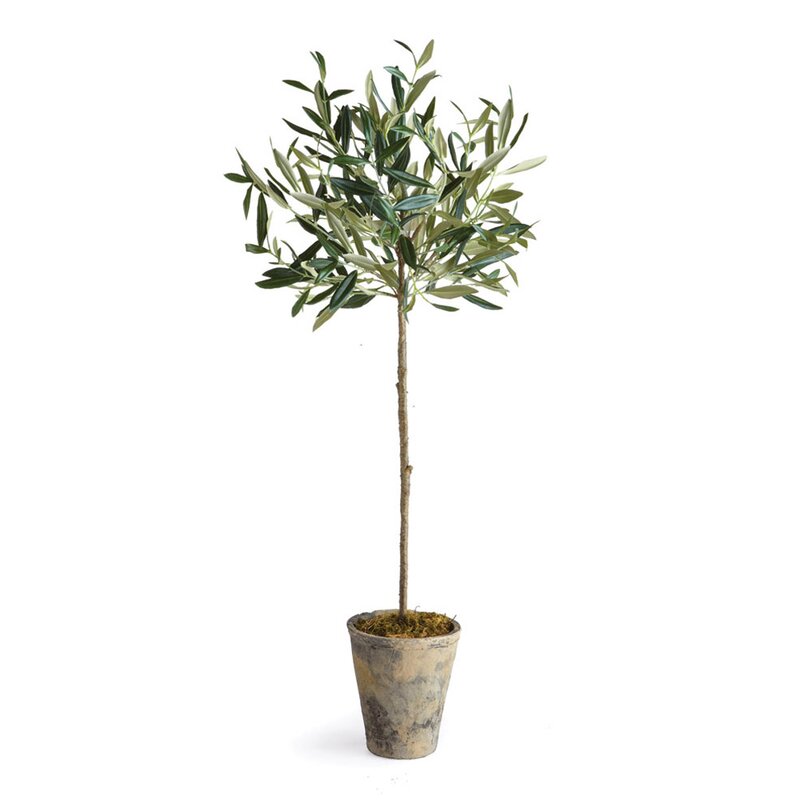
Olive Tree in Planter & Reviews Birch Lane
Choosing a Container A 20-22 inches container would be apt to grow olives. Using pots that are made from clay and wood will serve better as they are "breathable" materials, helping the roots to stay well aerated. Requirements For Growing Olive Trees Haven't planted a tree in a container ever? The olive tree is your best bet!
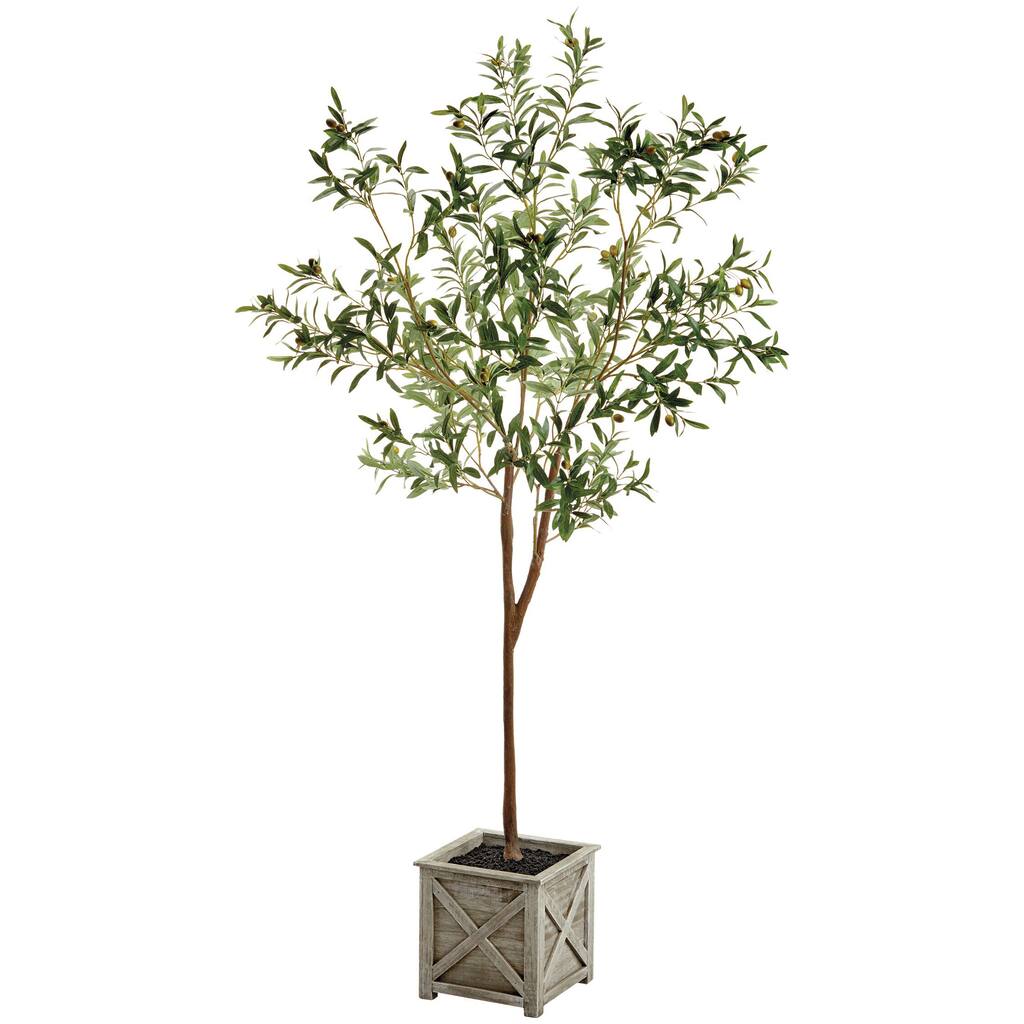
Purchase the 6ft. Olive Tree in Wood Planter at Michaels
Olive trees are usually purchased in either 4 inch (10 cm.) pots with numerous side branches and a height of 18 to 24 inches (46-61 cm.) or in a 1-gallon pot with a single trunk and a height of 4 to 5 feet (1-1.5 m.).
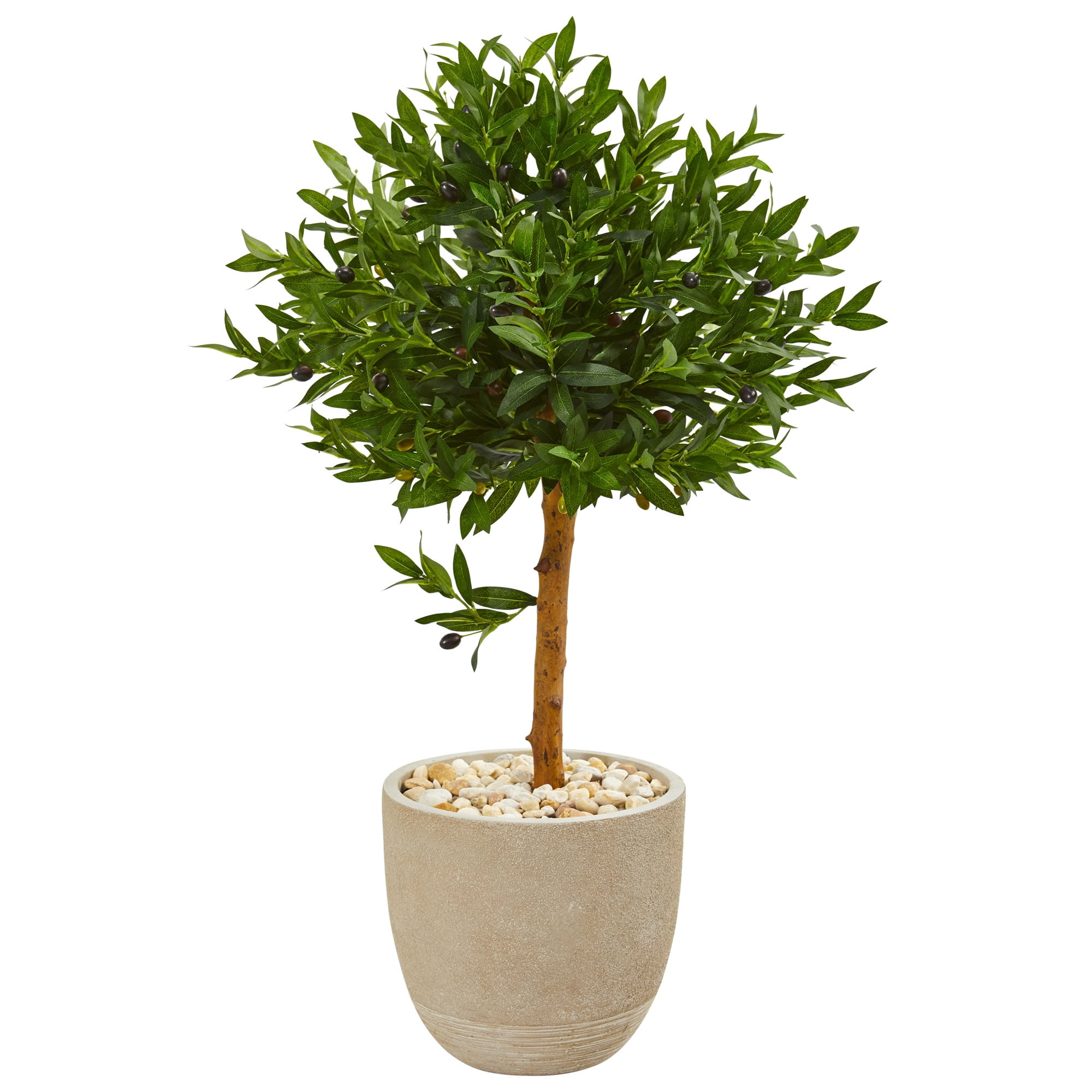
40 Olive Topiary Artificial Tree in Sand Stone Planter UV Resistant (Indoor/Outdoor) Walmart
Lots of people ask us do olives grow on trees?Yes, you CAN grow olive tree plants! Growing olive trees in the backyard orchard or in a container is not only possible, but easy and very rewarding. Learn how to plant an olive tree with this Olive Tree Planting Guide; it will lead you in the right direction for a healthy and thriving fruit tree!

Potted Olives in Terracotta Planter Olive Grove Oundle
Watering. Watering your olive tree is not that difficult, but you should make sure you have a pot with good drainage holes. Using a large container with drainage holes will help to keep your plant healthy. Make sure that the pot is half full of good potting soil or even use sand, which can be helpful for reducing the amount of water that's.

Potted olive trees. Tuscan landscaping, Potted olive tree, Tuscan landscape design
How to Plant an Olive Tree The basics are no different than planting other trees and plants: Dig a hole; remove your tree from its container; put tree in the hole; and add soil and tamp down. Add support stakes if needed; water the tree and admire your handiwork.

Raised planter with olive tree at Cowgirl Creamery makes a great picnic table. Tree
Olive Trees: A Field Guide Olive trees are "patient trees which will live in the stoniest ground," as the British landscape architect Russell Page summed up the situation. What more do you need to know to know that you want one of these ancient, graceful trees?

Olive tree in raised planter with box balls and lavender. Contemporary slatted … Courtyard
Olive trees grow best in regions with hot, dry summers and mild but cool winters. In order to bear fruit, they need a two-month dormancy period of cool weather when temperatures are ideally between 40° F to 50° F. However, colder winter temperatures (below 20° F) can damage or even kill a tree that is left unprotected. Exposure: Full sun Size:
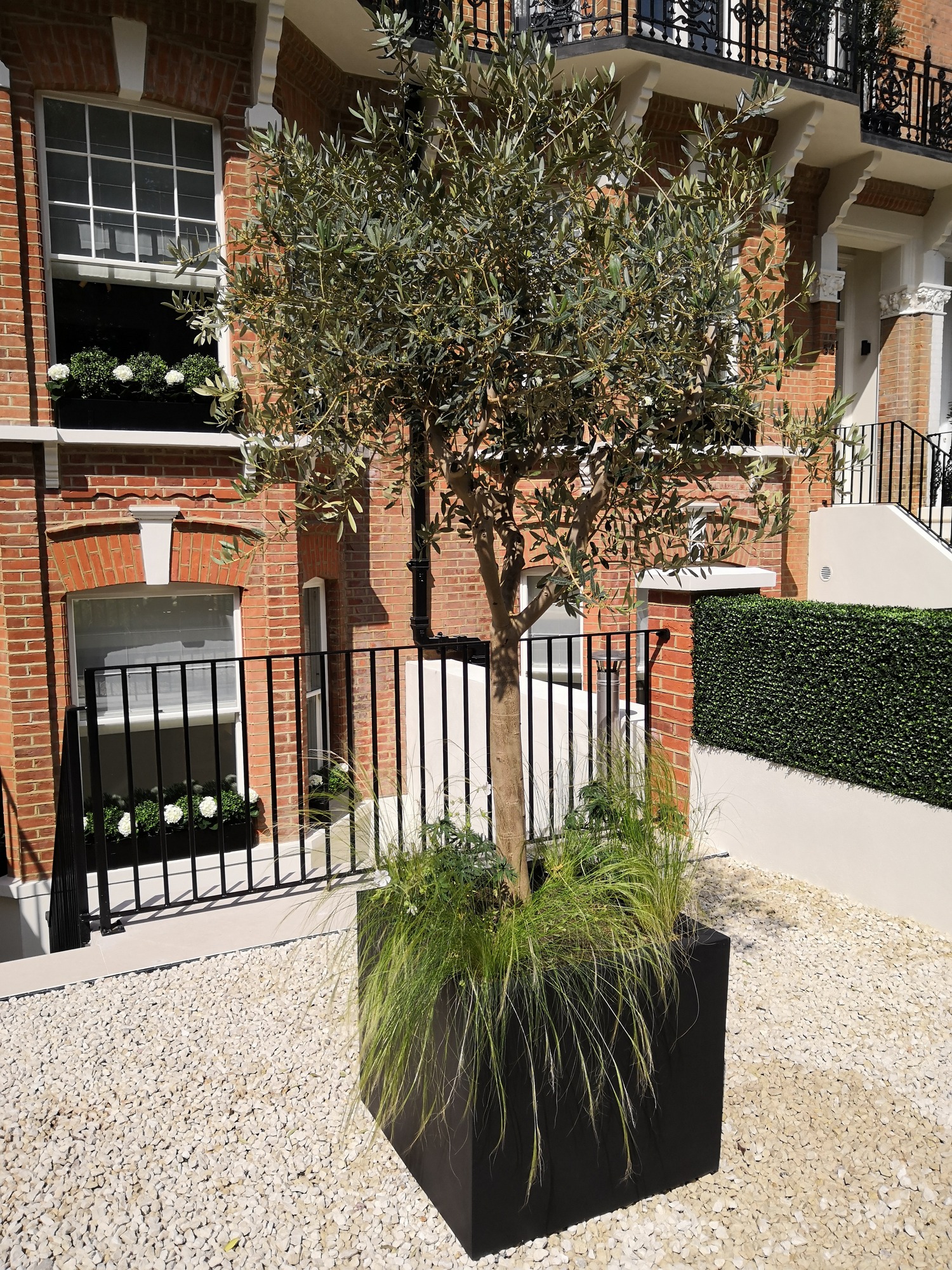
Real Olive Tree in polystone cube planter London Planters
1. Fox & Fern Ceramic Large Pot 2. Amazon Brand Ceramic Planter with Stand Clay Pots 3. Pure Garden Fiber Clay Pot Wooden Pots 4. Classic Home and Garden Wooden Pot Plastic Pots 5. Bloem Self Watering Plastic Pot 6. Novelty Classic Urn Planter 7. Lechuza Classico Color Self Watering Planter Conclusion Quick Overview of Large Pots for Olive Trees

Violet Grey Decorative on Instagram “Large Italian Terracotta Planters perfect for olive trees
When you shop for an Olive Tree, look for a plant that has an even canopy of healthy-looking leaves, and avoid Olive Trees that are showing signs of yellow leaves. Healthy Olive Tree foliage will be silver-green in color, and will not be crispy or dry to the touch. The leaves will not fall off if you shake a branch or pull gently.
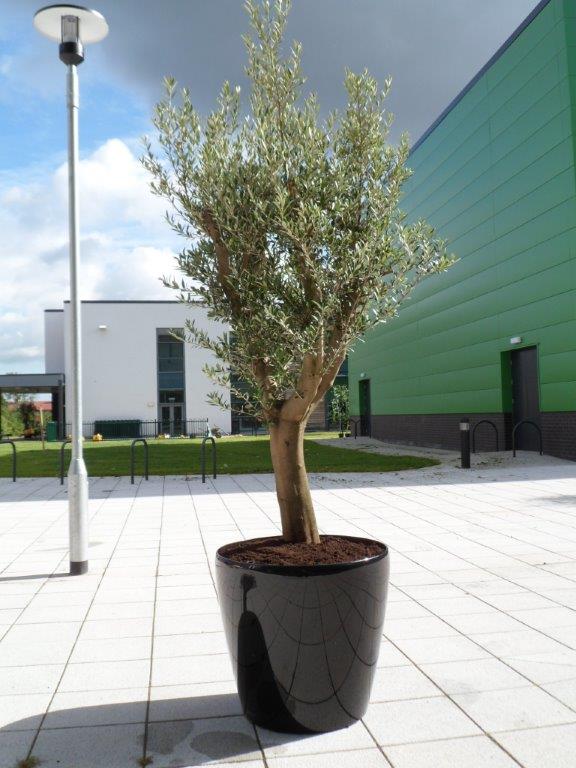
Olive Tree in Classico planter The Green Office
Place the container inside or outside, and make sure it receives about six hours of sunlight. Place an inch of organic matter on the top of the soil in the container. If the olive is outside, move it inside or to a warmer location if the weather freezes. Repot or plant the olive in the ground in about two years.
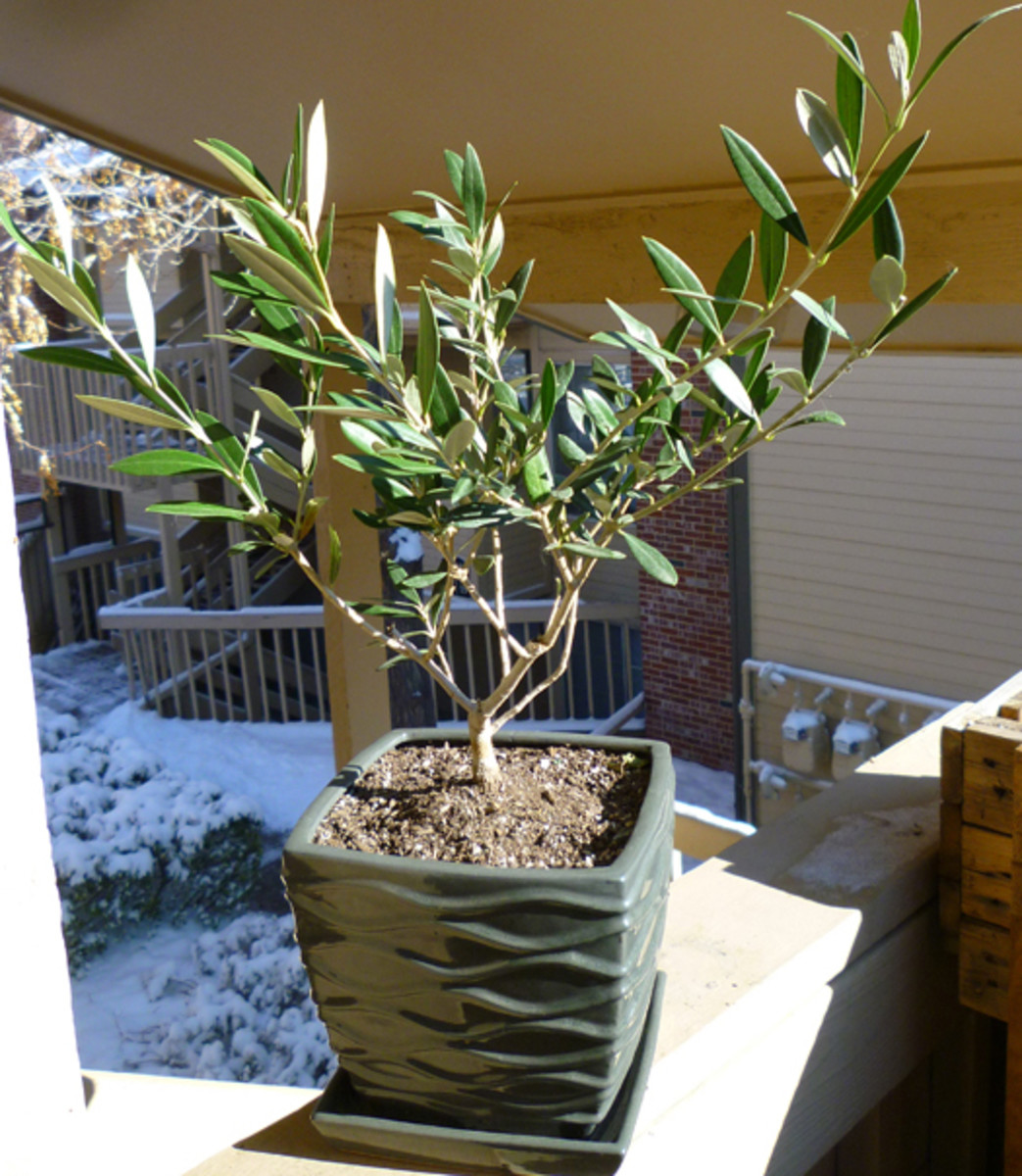
Growing Olive Trees in Pots and Containers Dengarden
Unlike others on this list, this artificial olive plant comes with a small amount of grassy moss around the wood tree base to create a more lifelike quality. At 71 inches tall, the branches and leaves are very full toward the top of the tree, and there are plenty of "ripe" olives poking out through the well-concentrated brush.
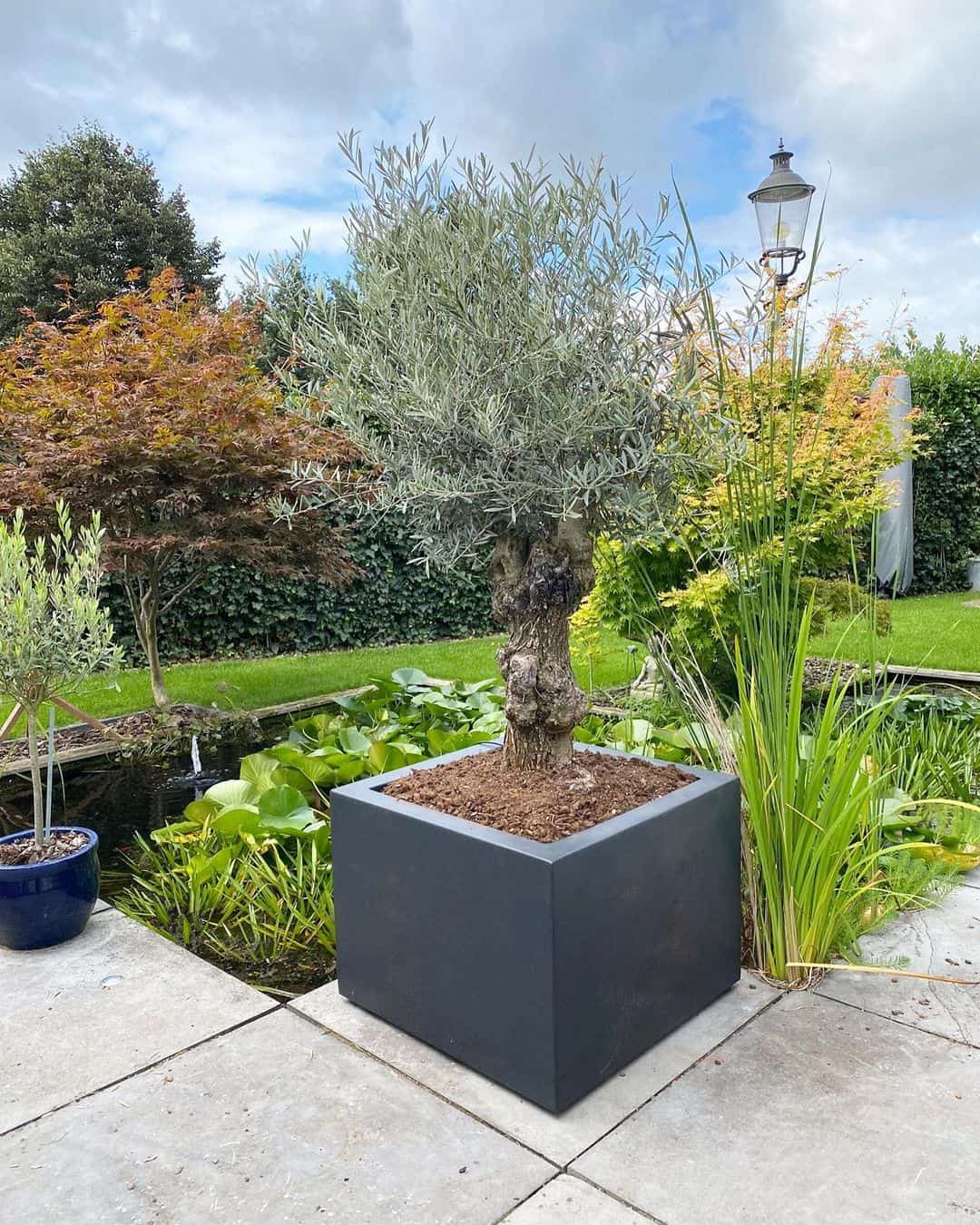
Can You Grow a Tree in a Planter Box? (How to Build it)
Plant your tree in a mix of potting soil and perlite or small rocks. When selecting a container, opt for clay or wood. Plastic containers retain more water, which can be deadly for an olive tree. Place your container-grown olive trees in a spot that receives at least six hours of full sunlight each day. Make sure not to overwater.

potted olive tree Olivos en maceta, Árboles en macetas, Decoración de jardín diy
Plant type: Evergreen tree Mature size: 13-26ft after 20-50 years Soil type: Well-drained Soil PH: Neutral Time of year to plant: Spring or fall Flowering time of year: Summer Hardiness zones: USDA 6 - 11 (dependent on variety) Scientific name: Olea europaea When, where and how to plant an olive tree (Image credit: joannatkaczuk)
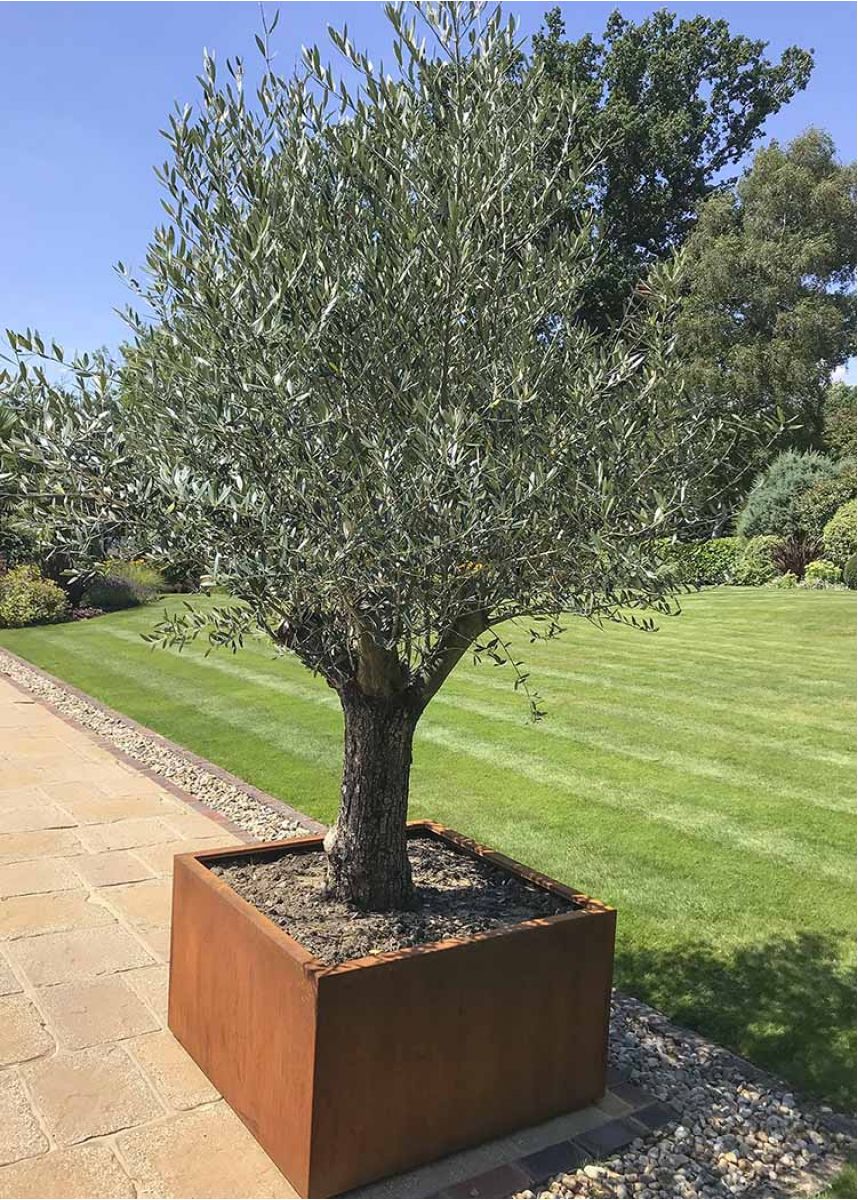
Large Square Corten Steel Planters 60cm & 80cm Tall Square Garden Planters
The olive tree, Olea europaea, is a classic Mediterranean tree that we might associate more with holidays than our own back garden. However, being slow-growing and usually only reaching a modest size, it makes a good garden tree in the UK. They can be grown in borders but make good trees for pots, too.

Nearly Natural Indoor Olive Artificial Tree in Weave Panel Planter5834 The Home Depot
Olive trees are ancient plants. Archeologists who have found olive pits and traces of olive oil in pottery shards estimate we've been cultivating them for 6,000 to 8,000 years. Not all of us can grow these trees for fruit or oil. They're hardy only in USDA zones 8 and warmer and start to die when temperatures hit the mid-teens.